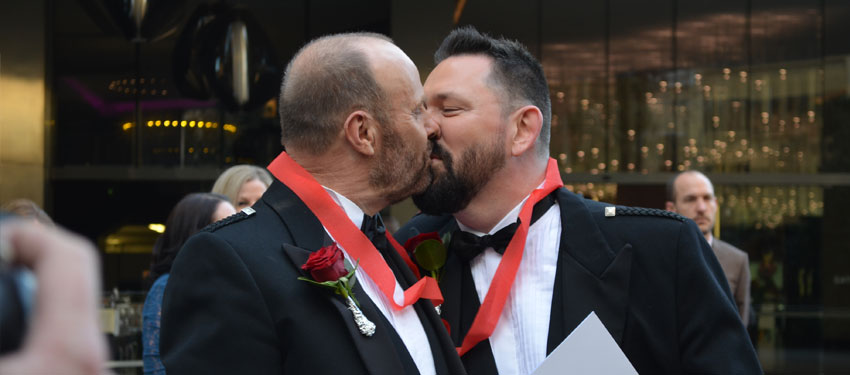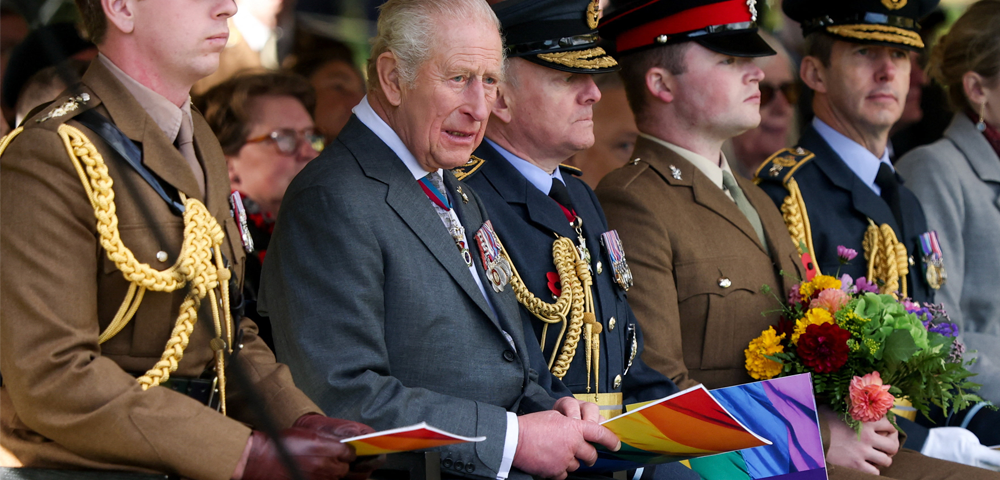
Nepal: South Asia’s LGBTI rights pioneer

IN the past few years, Nepal has established a reputation as somewhat of a trailblazer when it comes to the legal rights of LGBTI people in South Asia.
In 2007, Nepal was the first (and so far only) country in South Asia to decriminalise consensual same-sex relations. The rights of gender-diverse persons have also progressed: a third gender option was recognised in the National Census in 2011, on citizenship cards since 2013 and on passports since August 2015. Like India, Bangladesh and Pakistan, Nepal has a significant community of persons who identify as third gender and whose gender identity incorporates aspects of both masculinity and femininity.
[showads ad=MREC]The most recent advance in LGBTI rights took place in September 2015, when Nepal became the first country in Asia to include protections for LGBTI people in its constitution. The new Constitution of Nepal, which took years to negotiate and was subject to repeated delays, was enacted on September 20. It prohibits the state from discriminating on the basis of “sexual orientation” and “gender” (including in the application of laws). The Nepalese constitution also explicitly provides “gender and sexual minorities” with “the right to employment in state structures and public service on the basis of the principle of inclusion”. This provision, which implements a form of affirmative action for LGBTI people, is unprecedented anywhere in the world.
Moreover, the constitution provides every citizen with the right to be issued citizenship certificates in line with their gender identity, another constitutional provision that is unique globally. This is particularly significant in the Nepalese context. Despite the first citizenship cards with a third gender marker being issued in 2013, the vast majority of gender-diverse people have not actually managed to obtain the new cards. This is partly due to significant bureaucratic hurdles and prejudice by local officials. The inability of gender-diverse persons to have their gender identity reflected on their citizenship cards has resulted in significant barriers, including challenges with voting and accessing public services.
Despite its progressive provisions on LGBTI issues, concerns have been raised about other aspects of the constitution, including the fact that it discriminates against women. For example, the constitution allows Nepalese men married to non-Nepalese women to pass citizenship to their children, but does not allow the same for Nepalese women married to non-Nepalese men. The gendered nature of these provisions makes it difficult to foresee how same-sex marriage and parenting would be treated under the country’s constitution.
Nevertheless, Nepalese LGBTI advocates are optimistic. After the new constitution was enacted, the Blue Diamond Society — the largest LGBTI organisation in the country — announced that “it is phenomenal that Nepal is embracing GSM [gender and sexual minority] citizens” and “establishing our identity, rights and representation”. At the same time, the organisation noted that “we are under no illusions to the fact that this is just the beginning of the long road ahead towards full equality, dignity, rights and mainstreaming of GSM communities in Nepal”.
Indeed, Kaleidoscope Australia’s recent report on Nepal to the UN Human Rights Council, prepared in collaboration with the Blue Diamond Society, indicates there is still a way to go until Nepal’s LGBTI communities achieve full legal and social equality.
Nepal continues to not have any laws protecting LGBTI people against discrimination by private actors, such as employers and providers of education, health care and other services. Such laws are sorely needed: a 2013 survey by the Blue Diamond Society and the Williams Institute revealed that over 60 per cent of LGBTI people had experienced at least one incident of discrimination in employment, education or health care. Access to health care was a particular issue, with 23 per cent of LGBTI respondents being denied service by health care professionals.
Another gap in the legal framework remains the non-recognition of same-sex couples. In December 2007, the Supreme Court of Nepal issued a landmark decision, Pant vs. Nepal, which not only decriminalised same-sex relations but also recognised the “inherent right of an adult to have marital relation[s] with another adult”. The court ordered the Nepalese government to establish a committee to study global experiences on the recognition of same-sex couples and make appropriate changes in legislation. The committee, set up by the government in 2010, issued its report in February 2015. Significantly, it recommended legislating for marriage equality, as well as equal family protection for same-sex couples and their children. While the government has not yet indicated its response, the new constitution’s prohibition on the state discriminating on the basis of sexual orientation and gender may assist in legal efforts to recognise gender-neutral marriage.
Nepal has put in place an enviable constitutional framework in respect of the rights of LGBTI people. The key task facing the country now is to ensure that constitutional norms and other progressive legal reforms filter down to the grassroots level, ensuring that all LGBTI people are able to, in practice, obtain effective protection against discrimination by state officials and private actors, have their gender identities recognised in official documents and have their relationships treated equally under the law.
Raymond Roca is a Sydney-based lawyer and a director of Kaleidoscope Australia Human Rights Foundation, a non-profit organisation that seeks to promote and protect the rights of LGBTI people in the Asia-Pacific region. Details: kaleidoscopeaustralia.com
____________________________
**This article was first published in the November edition of the Star Observer, which is available to read in digital flip-book format. To obtain a physical copy, click here to find out where you can grab one in Melbourne, Sydney, Brisbane, Adelaide, Canberra and select regional/coastal areas.
RELATED: LGBTI CAMBODIA: A VIBRANT COMMUNITY WITH UNRECOGNISED RIGHTS
RELATED: TENTATIVE HOPE FOR LGBTI PEOPLE IN VIETNAM
RELATED: A NEW DAWN FOR LGBTI PEOPLE IN JAPAN
[showads ad=FOOT]









